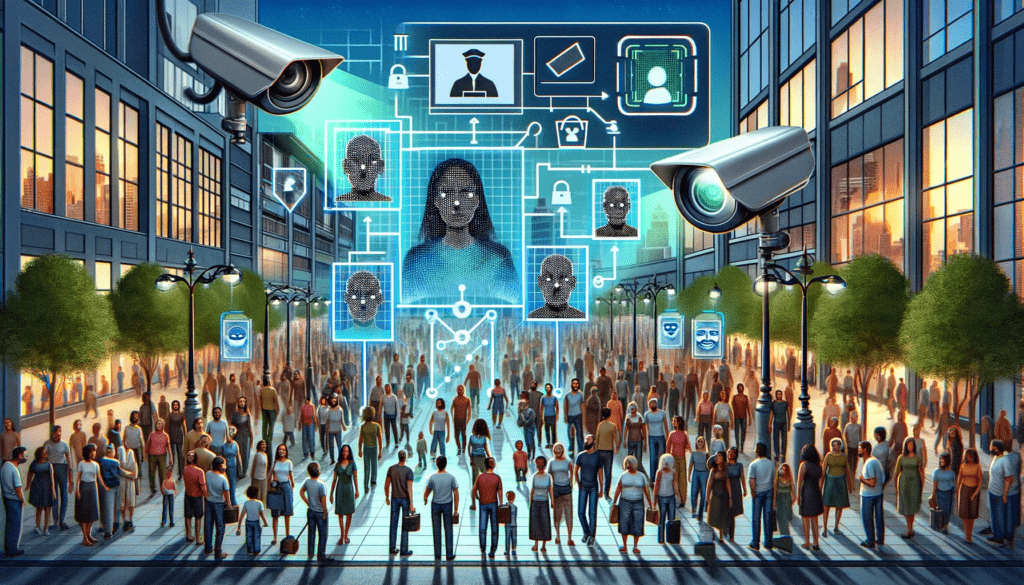Do you ever get an eerie targeted ad and wonder how your phone knew so much about you? Or feel unsettled when an AI voice assistant captures your personal conversations?
Emerging technologies like AI are raising new privacy concerns that we all need to understand.
As AI becomes more prevalent, so does data collection. Your online activity helps train algorithms to serve up scarily accurate recommendations and predictions. Voice assistants constantly record to improve their comprehension skills. Meanwhile, facial recognition can identify you in crowds.
While this tech feels straight out of Minority Report, it’s our current reality. So how do we balance innovation with privacy in this new normal? Let’s break down the latest developments and best practices around AI and data security.

AI Algorithms: Your Data Trains Them
From Netflix’s spot-on recommendations to Google’s tailored search results, it’s clear algorithms know you pretty well. The more of your data they access, the better they can predict your preferences. AI models are designed to continually learn from new information.
But does convenience justify loss of privacy? It’s a complex issue with arguments on both sides. Critics say users should have more transparency and control over how their information gets used.
Legislation like the EU’s GDPR gives citizens rights like opting out of data collection. On the other hand, tech defenders argue that AI advancements benefit society overall. The debate continues, but being an informed consumer is key.

Voice Assistants: Always Listening, For Better or Worse
Alexa, Siri and others collect massive amounts of voice data daily from homes worldwide. The assistants analyze speech to handle commands properly. The data then trains AI to comprehend natural language better.
But always-on mics inevitably gather private chatter too. While companies claim to anonymize data, many feel uneasy about inadvertent eavesdropping. There’s also potential for hacks or misuse.
Consumers must weigh the convenience against risks. Precautions like muting mics when not in use help. Opt-in data sharing provides more control. As with all AI, finding the right privacy balance takes thought.

Facial Recognition: The Double-Edged Sword
This sci-fi-esque tech uses AI to quickly scan faces and identify individuals from massive databases. It’s already widely adopted for security, payment systems, social media, and more.
Supporters point to advantages like finding criminals in crowds or unlocking phones securely. But facial recognition also raises concerns about mass surveillance if misused. False positives disproportionately impact minorities.
Once again, the privacy debate continues. Some advocate bans until proper oversight gets established. In the meantime, look for opt-in policies, limit photo tagging, and learn to protect your rights.

Owning Your Data Destiny
AI’s potential is boundless. But as adoption grows, so does prudent caution. Take time to research how companies use your information. Seek out privacy policies, opt-out programs, and extra protections whenever possible.
Stay vigilant for data breaches as well. Enable multi-factor authentication, change passwords regularly, and don’t overshare online. Your thoughtful engagement with technology today can help shape better privacy standards for the future.
We may not know exactly where the balance lies yet between AI and personal rights. But by learning all we can and advocating our values, we can head toward an ethical way forward.
Are you thinking more carefully about your privacy as AI advances? Share your thoughts below!

